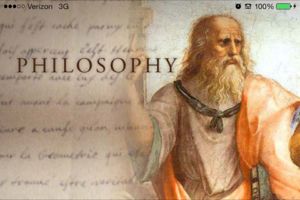Biography
John Locke was born August 29, 1632 in Wrington, Somersetshire, England, the son of John Locke and Agnes (Keene) Locke. [1]
He never married and had no children.
John Locke was an English philosopher and physician and was considered the first of the British Empiricists.[2] Locke is regarded as one of the most influential of Enlightenment thinkers and known as the "Father of Classical Liberalism". [3] Locke liked Rene Descartes' method of clearing the slate to find out how people learn, but he believed that all learning comes through the senses instead of reason. Reason is only a way of organizing the information that your senses gather. He advanced the theory of the tabula rasa. He believed all humans are born a blank slate and their experiences shape them into who they become. [4]
Locke did not accept the thinking of his time that human understanding was limited. He believed we could know with certainty that God exists and the complexities of morality with the same precision we know about mathematics, because we are the creators of moral and political ideas.[5][6]
Locke's belief that all people have the right to life, to own property, and to revolt against unjust governments was the basis of the Declaration of Independence. [7][8]
Bibliography
- 1689. A Letter Concerning Toleration.
- 1690. A Second Letter Concerning Toleration
- 1692. A Third Letter for Toleration
- 1689/90. Two Treatises of Government (published throughout the 18th century by London bookseller Andrew Millar by commission for Thomas Hollis)[104]
- 1689/90. An Essay Concerning Human Understanding
- 1691. Some Considerations on the consequences of the Lowering of Interest and the Raising of the Value of Money
- 1693. Some Thoughts Concerning Education
- 1695. The Reasonableness of Christianity, as Delivered in the Scriptures
- 1695. A Vindication of the Reasonableness of Christianity
Major posthumous manuscripts
- 1660. First Tract of Government (or the English Tract)
- c.1662. Second Tract of Government (or the Latin Tract)
- 1664. Questions Concerning the Law of Nature.[105]
- 1667. Essay Concerning Toleration
- 1706. Of the Conduct of the Understanding
- 1707. A paraphrase and notes on the Epistles of St. Paul to the Galatians, 1 and 2 Corinthians, Romans, Ephesians
Sources
- ↑ Somerset Heritage Service; Taunton, Somerset, England; Somerset Parish Records, 1538-1914; Reference Number: D\P\wri/2/1/2 by subscription https://www.ancestry.com/imageviewer/collections/60856/images/42886_1831109331_1181-00031?treeid=&personid=&hintid=&queryId=072466ef8b996277cd39b91e058bc7e4&usePUB=true&_phsrc=Sni2&_phstart=successSource&usePUBJs=true&pId=3137542
- ↑ Encyclopedia of Philosophy
- ↑ Locke, John. A Letter Concerning Toleration Routledge, New York, 1991. p. 5 (Introduction)
- ↑ Baird, Forrest E; Kaufmann, Walter (2008), From Plato to Derrida, Upper Saddle River, NJ: Pearson Prentice Hall, pp. 527–29, ISBN 0-13-158591-6
- ↑ Jefferson, Thomas. "The Letters: 1743–1826 Bacon, Locke, and Newton"
- ↑ The Reasonableness of Christianity as Delivered in the Scriptures by John Locke
- ↑ Locke and Human Rights
- ↑ Becker, Carl Lotus. The Declaration of Independence: A Study in the History of Political Ideas Harcourt, Brace, 1922. p. 27
- Transactions of the Royal Historical Society (Royal Historical Society, 1882)
- Vol. 10, Page 269: "Otes, a short distance from High Laver...John Locke spent...the last ten years of his life. His remains were buried on the south side of High Laver Churchyard, under a black marble slab, enclosed with iron rails, and on the exterior wall of the church is his epitaph in Latin."
- Pages 19, 144, 244 reference to his Two Treaties of Government and his Second Treaties written in 1688 "Essays on the American Revolution" edited by Stephen G Kurtz and James H Hutson, published by the Inst for Early American History and Culture, Williamsburg, VA...W W Norton and Co, NY 1973. Call #E208 E83.
See also:
Memories: 1
No known carriers of John's ancestors' DNA have taken a DNA test.
Have you taken a DNA test? If so, login to add it. If not, see our friends at Ancestry DNA.
Featured National Park champion connections: John is 14 degrees from Theodore Roosevelt, 21 degrees from Stephanus Johannes Paulus Kruger, 15 degrees from George Catlin, 17 degrees from Marjory Douglas, 24 degrees from Sueko Embrey, 14 degrees from George Grinnell, 25 degrees from Anton Kröller, 17 degrees from Stephen Mather, 22 degrees from Kara McKean, 18 degrees from John Muir, 15 degrees from Victoria Hanover and 27 degrees from Charles Young on our single family tree. Login to find your connection.






(1689) A Letter Concerning Toleration (1690) A Second Letter Concerning Toleration (1692) A Third Letter for Toleration (1689) Two Treatises of Government (1690) An Essay Concerning Human Understanding (1693) Some Thoughts Concerning Education (1695) The Reasonableness of Christianity, as Delivered in the Scriptures (1695) A Vindication of the Reasonableness of Christianity